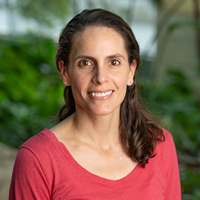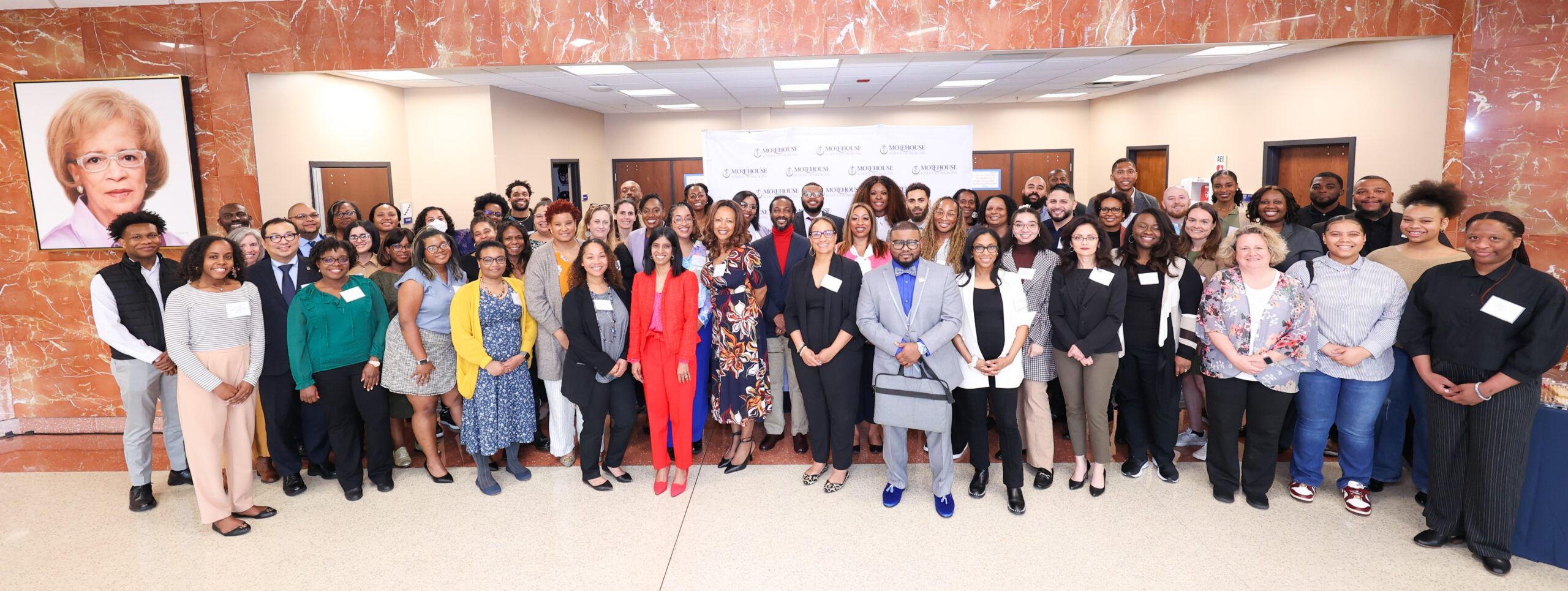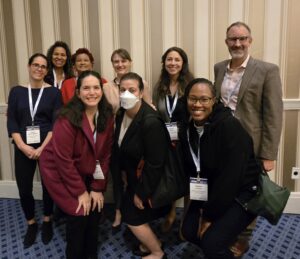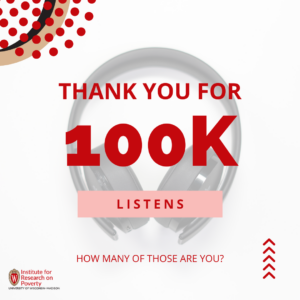
Dear Friends and Colleagues,
As the year comes to a close, we are grateful for the community of scholars and practitioners that have come together over the past year to advance IRP’s vision of producing and disseminating evidence that leads to a reduction of poverty and inequality in the United States.
In 2024 we had our first ever joint research event with the National African American Child and Family Research Center, “Advancing Research on African American Families in Economically Marginalized Communities.” Over 60 attendees gathered at the Morehouse University School of Medicine, and the panels and presentations highlighted the amazing work being done by both early career and senior scholars in this area.

A significant element of our work to support the next generation of poverty and economic mobility scholars is our Graduate Research Fellows program. This year’s cohort of 54 graduate students represent 14 different departments and programs at UW–Madison, and they come together to hear from our weekly seminar speakers and learn from each other.
We selected five new early career poverty scholars to participate in a two-year fellowship that provides funding, mentoring, and training so they can grow their portfolio of poverty and economic mobility research and make an impact outside of the academy. As always, our IRP community is stronger for having these dynamic scholars share their talents and research with us.

We continued to place National Poverty Scholars and Economic Mobility Fellows in federal offices. These fellows work in residence bringing their research and policy skills to our federal partners and growing their research skills that can impact policy to improve the lives of families with lower incomes.
IRP’s Wisconsin Administrative Data Core (WADC) is our state data resource that supports evidence-based policymaking. As of December 2024, there are 70 active projects utilizing WADC data and 44 more currently in development. These projects are led by nearly 80 researchers, the majority of whom are IRP affiliates on the UW–Madison campus.
In 2023, we were pleased to welcome the Retirement and Disability Research Consortium (RDRC) to the IRP family. This year, IRP was named the managing organization of the Analyzing Relationships Between Disability, Rehabilitation, and Work (ARDRAW) Training Program funded by the Social Security Administration (SSA). Preparing to launch in 2025, this program will train and mentor up to 25 graduate students annually who are interested in conducting innovative research relevant to beneficiaries of SSA’s disability programs and people with disabilities. We are excited to expand IRP’s work and reach in this vital area of research.
 Our webinars, policy briefs, and podcast interviews are intended to bring the important research conducted by our affiliates and other scholars to a broad audience of policymakers and practitioners. We were very pleased to surpass 100,000 listens to our Poverty Research & Policy podcast! We also hosted 12 webinars in 2024, for which over 11,000 people registered. The most popular webinar was “Surveillance of Mothers Living in Poverty: Effects on Children, Families, and Communities,” a conversation between Drs. Kelley Fong and Darcey Merritt.
Our webinars, policy briefs, and podcast interviews are intended to bring the important research conducted by our affiliates and other scholars to a broad audience of policymakers and practitioners. We were very pleased to surpass 100,000 listens to our Poverty Research & Policy podcast! We also hosted 12 webinars in 2024, for which over 11,000 people registered. The most popular webinar was “Surveillance of Mothers Living in Poverty: Effects on Children, Families, and Communities,” a conversation between Drs. Kelley Fong and Darcey Merritt.
Finally, as J. Michael Collins and I end our first few months as Associate Director and Director of IRP, we want to extend our sincere gratitude to Jeff Smith and Katherine Magnuson for their leadership of IRP over the past several years. We look forward to building on their successes as IRP moves into a new period of its long and respected history.
All of us at IRP are grateful for everyone who contributes to our mission. Whether it be by sharing your research, engaging in intellectual community through seminars and webinars, or mentoring emerging scholars, your work makes IRP a better and stronger institution. Your financial contributions also make an important difference as we seek to improve the effectiveness of public policies that reduce poverty and inequality as well as promote economic mobility and to support the next generation of poverty, inequality, and economic mobility scholars. We look forward to working with you in 2025!
Sincerely,
Sarah Halpern-Meekin
IRP Director